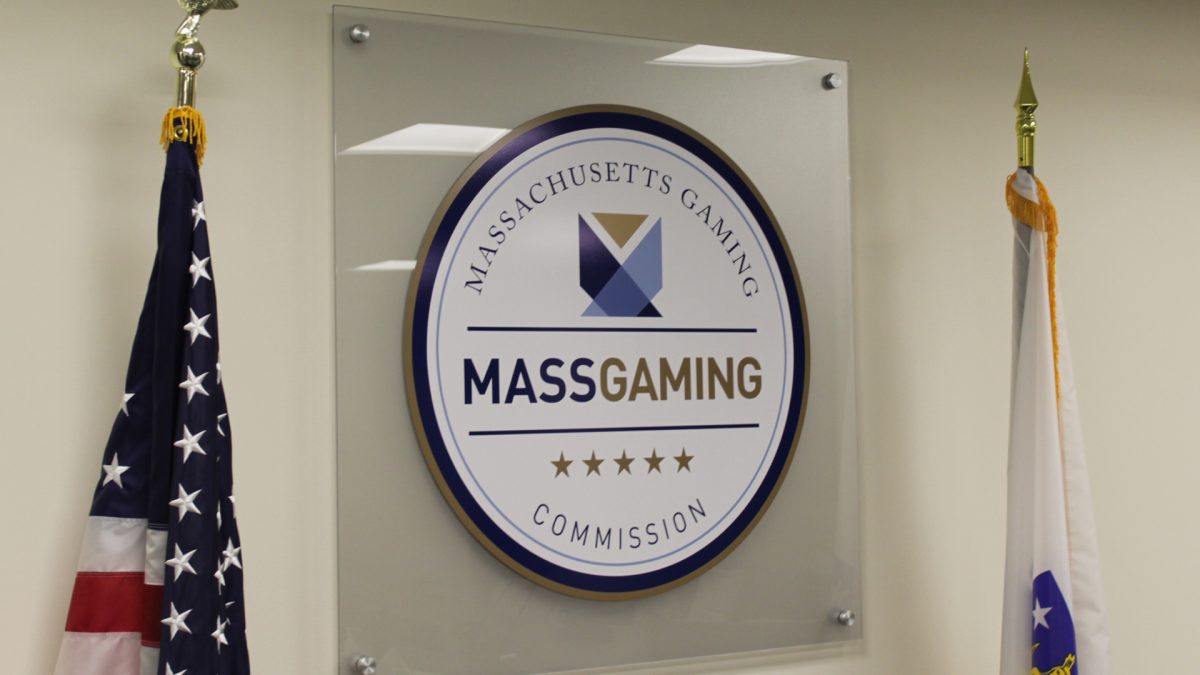May 2025 Casino Revenue In Shreveport And Bossier City

Gambling revenues for the casinos in Shreveport and Bossier City hold steady from April to May. The Gaming Control Board reports nearly $42 million in total revenues for the local boats in May. This is about the same as the April number, but still far off from the $57 million the area casinos brought in during March which was an extremely successful month for the local casinos. The gambling revenues in May of last year hit close to $45 million. So this number for 2025 is down about 7% from a year ago. READ MORE: Take a look at casino numbers from April What Are the Gambling Revenues in May for the Shreveport Area Casinos? Margaritaville $13.7 million Horseshoe $11.2 million Live! Casino $10.7 million Bally’s $9 million Boomtown $4.2 million Sam’s Town $3 million Live Casino drops from 2nd in the market to 3rd as Horseshoe bounces back. How Did the Shreveport-Bossier Casinos Stack Up in April? Margaritaville $13.3 million Live Casino $9.7 million Bally’s $7.4 million Horseshoe $5.4 million Boomtown $3.7 million Sam’s Town $2.7 million What Are the Casino Revenues in Other Louisiana Cities? Here are the casino revenues in Lake Charles, Baton Rouge and New Orleans: Lake Charles $68,207,923 New Orleans $27,903,501 Baton Rouge $28,075,543 This does not include the Harrah’s land based casino in New Orleans. Total riverboat gaming revenue for the state in May tops $175 million compared to $151 million in April. Casino revenues typically take a bit of a dip in the summer as folks go on vacations and spend money on other things while the kids are out of school. June revenues last year for the Shreveport-Bossier casinos came in just shy of $41 million. But this was just 5 casinos. Live! Casino was under construction at the time. We will have to see if the June numbers top last June. Sneak Peak: Inside New Live! Casino & Hotel Louisiana Grand Opening Source link
Hidden gem north of Bellingham offers both gaming and relaxation
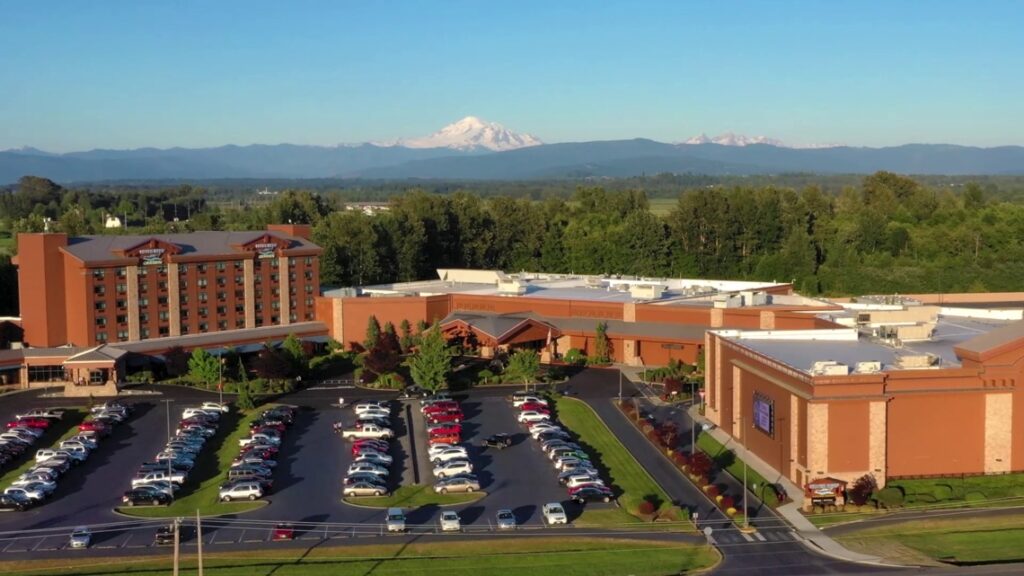
Even non-gamblers find plenty to do at this casino. Sponsored by Silver Reef Casino Resort. FERNDALE, Wash. — Just north of Bellingham, Silver Reef Casino Resort in Ferndale is a great getaway, even for non-gamblers, according to slot manager Wayne Moenoa. “You can come in and pick out your favorite thing that you want to do on our property because we have a lot to offer,” Moenoa said. First, you can feast. The Cantina specializes in Mexican fare. The Steakhouse is for fine dining. And at the Red River Cafe, do not miss this monster: The brisket burger, a tower of brisket, bacon, crispy fried onions and a beef patty, will feed two very hungry people for $20. You can also catch a show, from acts like Morris Day and The Time to bands playing music from the Eagles, Elton John and other well-loved artists. “We offer a wide variety of tribute bands,” Moenoa said. Nearby Loomis Trail is a good bet for golfers. “We have a great 18-hole golf course,” Moenoa said. “It has water features. It’s very easy to play if you’re a really good golfer, and little challenging if you’re a golfer like myself.” After it all, relax at the Silver Reef Resort, surrounded by luxury amenities from the indoor pool and hot tub to a spa. Also, look closely: all over the resort and the casino, you will find Lummi Nation artifacts, artwork and history. If you come to the casino, you’ll find more than 1,000 slot machines and table games too. Plus, there’s something new here. “We just opened up our sports book,” Moenoa said. “Giant TVs where you can watch multiple games, an odds board and a nice friendly team that’s in there to help you pick your favorite team.” A free players card will get you a 10% or more discount at the hotel, and in the restaurants. “It’s big enough to find your favorite game, and we have a lot of them, but you’re not lost into the crowd,” Moenoa said when asked to describe what makes Silver Reef special. “When you go to the bigger casinos and you’re just a number here, you’re a name, you’re a face. We want to welcome you as family and treat you well.” Whether you try your luck or not, Moenoa says the hand you get dealt here will be a good one. “It is a really hidden gem, and if you’re looking for a good time, if you want to get that family feeling, come to Silver Reef,” Moenoa said. Sponsored by Silver Reef Casino KING 5’s Evening celebrates the Northwest. Contact us: Facebook, X, Instagram, Email. Source link
NYC-area casino license, capital investment minimums set at $500 million each — CDC Gaming
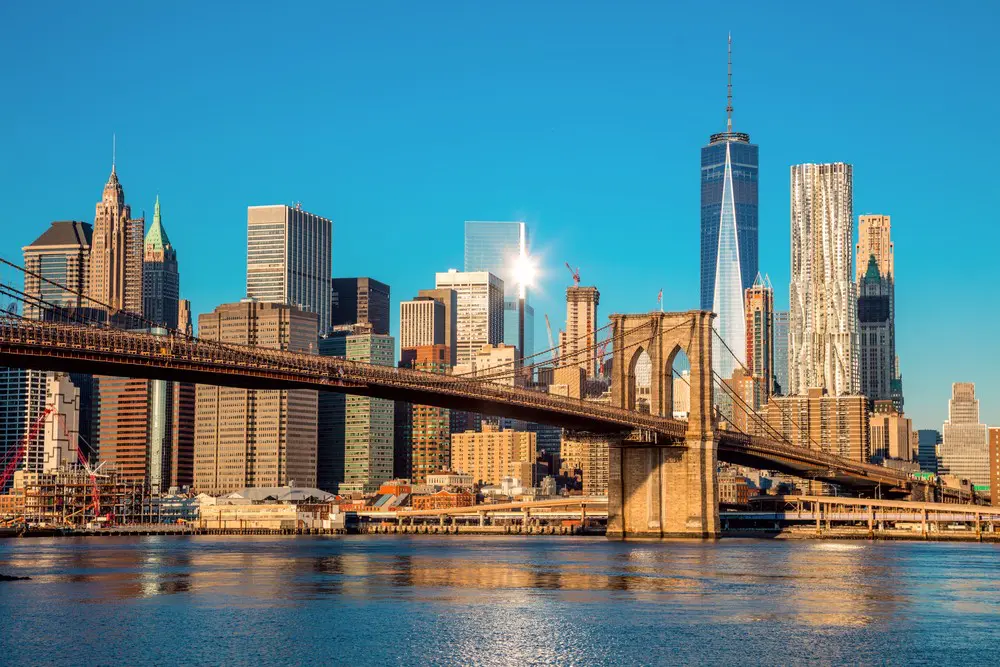
Chris Altruda, Casino Reports Email, LinkedIn, and more The New York State Gaming Commission’s (NYSGC) Gaming Facility Committee on Monday established the minimum price for each of the three downstate casino licenses to be made available at $500 million. The members of the committee also established a minimum of $500 million in capital investments for potential licensees ahead of the June 27 deadline for applications to be submitted to the NYSGC. There are expected to be eight bids submitted for the coveted licenses, with three likely to be Manhattan-based proposals. The meeting itself lasted less than 10 minutes as the committee noted the rules establishing the minimums were published in the state’s register last July 31. Source link
Massachusetts OK’s casino mitigation funds, but the well may be running dry — CDC Gaming
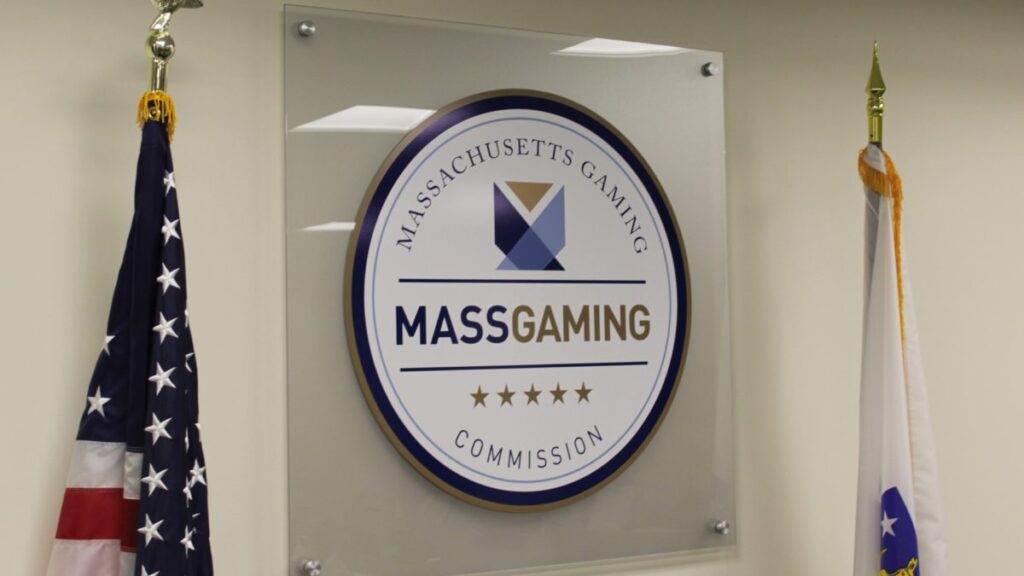
Jim Kinney, Masslive.com Email, LinkedIn, and more The Massachusetts Gaming Commission approved $3.1 million in new Community Mitigation Fund grants for Western Massachusetts Tuesday. The awards followed $3.2 million in community mitigation funds it approved May 27. But this might be the last time the commission distributes this much funding to the region. Versions of next year’s state budget making their way through Beacon Hill call for the elimination of the fund, folding it into the state’s general coffers. At Tuesday’s meeting, Joseph Delaney, chief of the commission’s Division of Community Affairs, said the commission currently has enough money collected from casinos to fund the $22 million to $23 million worth of grant requests it has received. Source link
Bill to end smoking at Rhode Island casinos headed to Senate floor — CDC Gaming
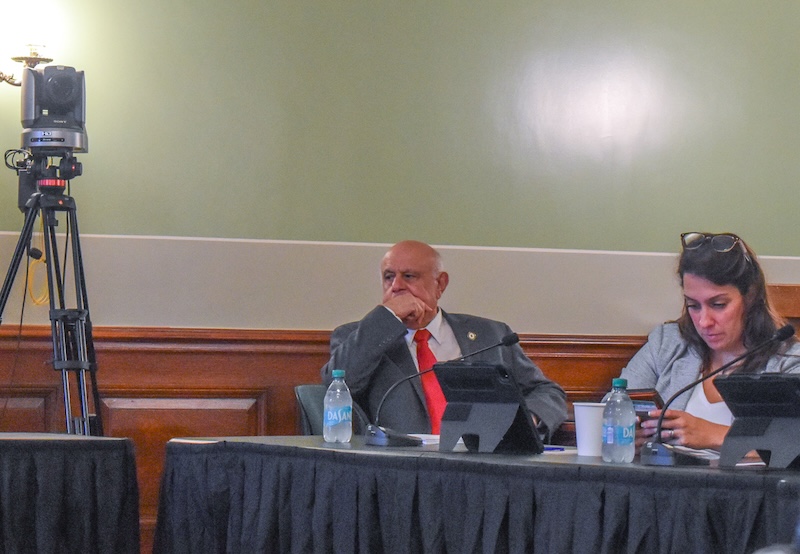
Tuesday, June 17, 2025 7:58 PM Image aggregated from Rhode Island Current. Christopher Shea, Rhode Island Current Email, LinkedIn, and more A Rhode Island Senate panel needed only 30 minutes Tuesday to unanimously endorse a bill that would end the exemption to the state’s indoor smoking ban enjoyed for years by the state’s two casinos. If the measure becomes law, it would not start until 2027. The Senate Committee on Labor & Gaming voted 7-0 to advance an amended bill by Sen. V. Susan Sosnowski, a South Kingstown Democrat, for consideration by the full chamber. A floor vote has been set for Wednesday. Committee member Sen. Ryan Pearson, a Cumberland Democrat, was absent from the vote. “To say it’s been a long time coming would be an understatement,” Sosnowski told the committee. Source link
Eight Bidders for NY Casino Licenses Left Ahead of June Deadline

Eight bidders are still in contention for three downstate New York casino licenses as the June 27 application deadline approaches. Jun 17, 2025 • 17:50 ET • 4 min read Photo By – Imagn Images. Eight bidders are still in contention for three downstate New York casino licenses as the June 27 application deadline approaches. Those left include Bally’s Bronx, Caesars Palace, Resorts World, Empire City, Freedom Plaza, and Metropolitan Park. A final decision is expected by the end of the year. Key takeaways Eight bidders remain for three New York downstate casino licenses. The New York City Council backed Bally’s application, but Wynn and Las Vegas Sands withdrew proposals recently. The application deadline is June 27. The application process started in early 2023, following Gov. Kathy Hochul’s decision to prioritize an expansion of the casino sector as part of the 2022 state budget. However, the idea dates back to 2013 and the first expansion discussions. New York legalized land-based casinos and has several locations upstate. Although online casinos aren’t allowed, New York online sports betting is available statewide. Wynn and Las Vegas Sands out of the running for NY casino licenses One company no longer in the running is Wynn Resorts. Last month, Wynn Resorts dropped its plan to develop a casino resort in Hudson Yards, Manhattan, in partnership with Related Companies. According to the company, persistent opposition to its project made the decision inevitable. Wynn Resorts was another major casino operator that recently bowed out of the bidding. In April, Las Vegas Sands announced it wouldn’t pursue a license to operate a casino at the Nassau Coliseum on Long Island. In that case, the company cited the possibility of competition from legalized online casino gaming, should this be legalized at some point. Wynn Resorts and Las Vegas Sands aren’t the only companies to complain about the casino license process. Some reports suggest senior executives from over half a dozen operators alleged that the lengthy and expensive process was highly politicized. Bally gets approval from NYC Council One rival operator, Bally’s, appears to be in a strong position to get a license, after it earned the New York City Council’s approval for its proposal to build a casino in the Bronx. The plan would use the site of a golf course Bally’s owned, although it met strong opposition from local leaders and residents. The company paid $60 million to gain the lease on the land, and would be in line to pay another $115 million if its bid is accepted. The reclassification of land to get the casino plan approved still needs to pass through further checks from lawmakers before getting the greenlight. Pages related to this topic Source link
Progress update on the Catawba Two Kings Casino | June 17,2025

The first phase is on target for a spring 2026 opening as the gaming authority prepares to hire 2,000 additional employees. KINGS MOUNTAIN, N.C. — One year after breaking ground on a $1 billion casino project, the Catawba Two Kings Casino in Kings Mountain is showing significant progress with construction on schedule for its spring 2026 opening. The massive development, which can’t be missed by people traveling through the area, represents one of the largest private investments in Cleveland County’s recent history. “We’re already making an impact, you know, not only in Cleveland County, but also making an impact for our nation,” said Trent Troxel, vice president of the Catawba Nation Gaming Authority. The introductory phase of the casino will feature more than 1,300 slot machines and 22 table games when it opens to the public. Visitors will also find a restaurant, bar, and sports betting kiosks as part of the initial offerings. The economic impact extends far beyond entertainment, according to Troxel, who outlined the project’s employment goals. “Right now, we have around 490 employees. We’re going to hire 2,000 more employees between now and 2027, when we open up the permanent casino,” he said. The employment expansion represents a significant boost for the local economy as the Catawba Nation prepares to nearly quintuple its workforce over the next three years. During last year’s groundbreaking ceremony, Catawba Nation Chief Brian Harris emphasized the broader significance of the economic development for tribal members. “These economic dollars will help sustain housing, healthcare, education,” he said. “That way, our tribal members will be able to grow up with the things I never had or had the opportunity to see.” The facility is designed to draw visitors from across the region, with gaming authority officials expressing confidence in their ability to compete in the competitive casino market. “Just come out, give us a try. We have a friendly staff, we’re safe and we’re clean, so just come out, give us a try,” Troxel said. The first phase represents the initial stage of a much larger development plan. The permanent casino complex, scheduled to open in 2027, will significantly expand the gaming and entertainment options available to visitors. Construction crews continue working on the project, which has become a visible symbol of economic development in Kings Mountain. The facility’s scale and investment level reflect the Catawba Nation’s long-term commitment to the area. The spring 2026 opening timeline remains on track, according to gaming authority officials, despite the complexity of the multi-phase construction project. The casino will replace the current temporary facility that has been operating in the area, offering expanded gaming options and amenities for visitors. Local officials have praised the project for bringing jobs and economic development to Cleveland County, with the impact expected to extend throughout the region once fully operational. Contact Myles Harris at mharris5@wcnc.com and follow him on Facebook, X and Instagram. Download WCNC+ on your Roku, Amazon Fire TV or Apple TV, and stream the news that impacts you for free. Source link
Trust but Verify: What Every Player Should Know About Online Casino Licensing and Regulation

Online casinos have come a long way from their early days. With thousands of sites competing for attention, it’s more important than ever for players to understand how to separate the trustworthy casinos from the risky ones. At the heart of this lies licensing and regulation — two pillars that ensure your gaming experience is fair, secure, and protected. If you’ve browsed through platforms like Vegas Freedom, you’ll notice that the best casinos always highlight their licensing information upfront. This isn’t just a badge of honor; it’s a promise that the casino follows strict rules designed to protect players. So before you hit that “Play” button, here’s what you really need to know about online casino licensing and regulation. Photo by Javon Swaby from Pexels Why Licensing Matters: More Than Just a Paperwork Check Think of a casino license as a driver’s license for online gambling operators. It’s their official permission to operate legally and, more importantly, to play by the rules. Without a valid license, an online casino is like a car without insurance — risky and unprotected. Licensing bodies set standards for how casinos handle your money, how fair their games are, and how they protect your personal information. They require operators to maintain transparency, prevent underage gambling, and resolve disputes fairly. When a casino is licensed, it means a trusted third party is keeping an eye on them, which gives players peace of mind that they’re not being scammed. Meet the Key Licensing Authorities You Should Know Not all licenses are created equal. Different jurisdictions have different rules and reputations. Here are some of the most recognized licensing bodies in the online casino world: Malta Gaming Authority (MGA): One of the most respected regulators, the MGA has strict compliance rules. Casinos licensed here undergo regular audits to ensure fairness and security. United Kingdom Gambling Commission (UKGC): Known for its rigorous standards, the UKGC protects millions of players and requires operators to promote responsible gambling. Gibraltar Regulatory Authority: This small but influential body issues licenses to many high-profile casinos, focusing heavily on player protection. Curacao eGaming: Popular with many offshore casinos, Curacao offers licensing but has a less strict oversight compared to MGA or UKGC, so it’s wise to research casinos licensed here carefully. Isle of Man Gambling Supervision Commission: A smaller regulator but known for high standards and thorough checks. Knowing which license a casino holds can help you judge how safe and fair it is to play there. How Do Regulators Ensure Fair Play? Licensing authorities don’t just hand out licenses and walk away. They actively monitor casinos to protect players by enforcing: Random Number Generator (RNG) Testing: RNGs ensure game outcomes are random and not rigged. Casinos must have their RNGs regularly tested by independent labs like eCOGRA or iTech Labs. Fair Payout Percentages: Regulators often require casinos to maintain minimum payout percentages (Return to Player or RTP) and to report these regularly. Secure Transactions: Licensing bodies enforce data encryption standards and secure payment processing to keep your information safe. Responsible Gambling Measures: These include self-exclusion options, deposit limits, and support for players with gambling problems. If a licensed casino fails these checks, it risks losing its license — which can be devastating to its business. This pressure keeps casinos honest. How to Verify an Online Casino’s Licensing Credentials It’s one thing for a casino to claim they are licensed, but you want to confirm it yourself. Here’s how: Look for License Information on the Site: Usually found in the footer or the “About Us” section, a reputable casino will clearly display its licensing details, including the license number. Check the Licensing Authority’s Website: Most regulators provide a public database where you can enter the casino’s name or license number to confirm validity. Read Independent Reviews: Trusted review sites and platforms like Vegas Freedom often verify licensing and report on the casino’s regulatory status. Watch for Red Flags: If you can’t find licensing info, or if the casino only shows vague claims without verifiable details, it’s a warning sign. By taking these simple steps, you’re protecting yourself from fraud and ensuring you’re playing in a regulated environment. What Happens If Things Go Wrong? Even with regulation, disputes can happen. Maybe you suspect a payout delay, or you don’t agree with how the casino handled a bonus. Luckily, a licensed casino is required to have a clear complaints process. This often involves: Internal Resolution: First, you file a complaint with the casino’s customer support team. Independent Arbitration: If the casino’s response isn’t satisfactory, you can escalate the issue to the licensing authority’s dispute resolution service. Regulators have the power to investigate and sanction casinos that violate rules, which adds an extra layer of protection for players. Licensing and Your Privacy: What You Should Expect Online casinos collect a lot of personal and financial data. Licensing authorities demand strict privacy policies and compliance with data protection laws like GDPR (in Europe). This means: Your data must be securely stored and encrypted. The casino can’t share your information without consent. You should have access to your data and the ability to request deletion where applicable. If a casino is lax about privacy, that’s a big warning sign. Licensed casinos take your privacy seriously and make it clear in their policies. The Role of Transparency in Licensing Transparency isn’t just about showing a license badge. It also means casinos openly share information about: Game fairness and RTP rates. Terms and conditions, especially around bonuses. Payment methods and withdrawal times. Responsible gambling tools. This transparency lets players make informed decisions and builds trust, which benefits everyone involved. Photo by Pixabay from Pexels Final Thoughts: Play Smart by Trusting Verified Casinos The online casino world is exciting, full of great games and chances to win, but it also requires a bit of homework. Understanding licensing and regulation helps you steer clear of trouble and enjoy a safe, fair gaming experience. Next time you’re ready to play, don’t just take a casino’s word for it. Look for solid licensing, verify credentials, and play at sites that take regulation seriously. It’s your best
Get Up To $1,025 In Casino Bonuses (June 17)

Menu Betting Apps Caesars BetMGM DraftKings FanDuel BetRivers Betway Bet365 Fanatics ESPN Bet Hard Rock Bet Sports NFL NFL Picks NCAAF MLB Horse Racing NBA Soccer NHL Golf UFC CBB NASCAR Daily Fantasy Picks Handicappers Adam Thompson Bill Speros Nick Whalen Steve Bulanda Alex Barutha Mark Fordham AJ Scholz NFL Picks NCAAF Picks UFC Picks MLB Picks NASCAR Picks NHL Picks Golf Picks NBA Picks NCAAB Picks Free Picks Odds NFL Odds MLB Odds NHL Odds NBA Odds NCAAB Odds NCAAF Odds Golf Odds EPL Odds Tools Betting Guides Odds Calculator Parlay Calculator Sports Betting Legal US Betting States AZ Arizona CO Colorado CT Connecticut IL Illinois IN Indiana IA Iowa KS Kansas LA Louisiana MA Massachusetts MD Maryland MI Michigan DC Washington D.C NJ New Jersey NY New York OH Ohio PA Pennsylvania TN Tennessee VA Virginia WV West Virginia KY Kentucky NC North Carolina VT Vermont ME Maine Launching Soon OK Oklahoma MN Minnesota TX Texas MO Missouri Canadian Provinces ON Ontario QC Quebec AB Alberta BC British Columbia MB Manitoba Other Locations UK UK Betting Sites UK Free Bet Offers Bet Builder Sites UK Betting Apps Cash Out Sites Acca Insurance BOG Bookmakers Top UK Betting Sites Australia Australian Betting Sites AFL Betting Sites Rugby League Betting Sites New Zealand New Zealand Betting Sites NRL Betting Sites Free Bets NZ Ireland Irish Betting Sites Golf Betting Sites Betting Apps Ireland Free Bets Ireland India Betting Sites In India Cricket Betting Sites India Betting Apps In India IPL Betting Sites Cricket Betting Apps IPL Betting Apps Mexico Brazil Apostas de Futebol Nigeria Online Casinos Best Online Casinos USA BetMGM Casino Bonus Code FanDuel Online Casino Caesars Online Casino Golden Nugget Online Casino Source link
Extended BetMGM Bonus Code SILIVE150: $150 betting bonus and $2.5K casino deals for Father’s Day week

The BetMGM bonus code “SILIVE150” has officially been extended through Father’s Day Week, offering new users a low-risk, high-reward entry point to bet on Tuesday’s Stanley Cup Final Game 6, the MLB schedule, and other top June events. New users in New Jersey, Pennsylvania, Michigan, West Virginia, and Colorado can unlock $150 in bonus bets simply by placing a $10 winning wager. The bonus can be used across BetMGM’s markets, including NHL goal props, MLB pitcher strikeouts, or live golf futures. BetMGM Bonus Code SILIVE150 Details for Tuesday, June 17, 2025: The new BetMGM Bonus Code secures huge bonuses in legal sports betting states nationwide.Certified BetMGM Bonus Code. BetMGM Bonus Code SILIVE150: $150 Welcome Offer for Sports Betting Today’s headline promo is easy to claim for users in eligible states. Here’s how it works: Sign up for a new BetMGM Sportsbook account using bonus code SILIVE150 Deposit $10 or more Place a $10 bet on any sporting event If your bet wins, you’ll get $150 in bonus bets This flexible offer can be used across the board—MLB, NHL, NBA, WNBA, and more. It’s perfectly timed for the biggest events of the week. This BetMGM Bonus Code offer is available in CO, MI, NJ, PA, and PA. Review the BetMGM Bonus Code’s updated terms and conditions.BetMGM BetMGM Casino Bonus Code Offers: Use the BetMGM Casino bonus code when you sign up to claim your rewards.BetMGM Casino Bonus Code. New Jersey, Pennsylvania, and Michigan: 100% Deposit Match up to $1,000 $25 in bonus site credit upon signup West Virginia: 100% Deposit Match up to $2,500 $50 bonus credit 50 Bonus Spins for select slots These offers give new casino users access to BetMGM’s full suite of table games, slots, and live dealer titles—with some of the best incentives in the U.S. Top Events to Bet with BetMGM Bonus Code SILIVE150 on Tuesday, June 17: Stanley Cup Final – Game 6: Oilers vs. Panthers Time: 8:00 PM ET Venue: Amerant Bank Arena – Sunrise, FL Series: Florida leads 3-2 Moneyline: Panthers -146 | Oilers +130 Spread: Panthers -1.5 (+160) | Oilers +1.5 (-190) Total: O/U 6.5 (-110 both sides) The Panthers have a chance to close it out at home after stealing Game 5. BetMGM’s same-game parlay builder makes it easy to combine props like Leon Draisaitl anytime goals with alternate totals or goalie saves. Tuesday’s MLB Slate – June 17, 2025 Featured Matchups and Starters: Phillies at Marlins (6:10 PM ET): Cal Quantrill vs. Jesús Luzardo Pirates at Tigers (6:40 PM ET): Casey Mize vs. Bailey Falter Angels at Yankees (7:05 PM ET): Will Warren vs. Kyle Hendricks Mets at Braves (7:15 PM ET): David Peterson vs. Spencer Schwellenbach Red Sox at Mariners (9:40 PM ET): Brayan Bello vs. Walker Buehler Padres at Dodgers (10:10 PM ET): Matt Sauer vs. River Ryan With 15 games on the board, you can use your bonus bets on early innings totals, strikeout props, or late-game moneylines—especially for marquee matchups like Angels vs. Yankees or Mets vs. Braves. Special BetMGM Bonus Code Offers for Father’s Day Week: Check legal BetMGM sports betting states here.AP $1,500 First Bet Offer In states where the $150 offer isn’t available (like NY, VA, IL, and TN), BetMGM bonus code CUSE150 delivers up to $1,500 in bonus bets if your first wager loses. This safety net gives you a second chance at a strong start, regardless of the result. Nevada Sportsbook Offer Nevada users who register in person can access: Up to $250 in bonus bets if your first in-person sportsbook wager loses Exclusive to BetMGM Nevada retail sportsbook users MLB Free Game of the Day Every BetMGM user can stream one free MLB game per day in the app. Just log in and look for the “Free Game” badge to watch without needing cable or a paid subscription. Why BetMGM Bonus Code SILIVE150 Is the Top Offer for Father’s Day Week With Stanley Cup Game 6 and every MLB team in action, this is the perfect time to activate your BetMGM bonus code. Whether you’re chasing longshot parlays or betting live during Panthers vs. Oilers, you’ll get $150 in bonus bets for a winning $10 wager. Sign up with BetMGM bonus code SILIVE150 today to start betting—and don’t forget, up to $2,500 in casino bonuses are also available depending on your state. Gambling problem? Call 1-800-GAMBLER (Available in the US) Call 877-8-HOPENY or text HOPENY (467369) (NY) Call 1-800-327-5050 (MA) 21+ only. Please Gamble Responsibly. Call 1-800-NEXT-STEP (AZ), 1-800-BETS-OFF (IA), 1-800-981-0023 (PR). Gambling problem? Call 1-800-GAMBLER (Available in the US) Call 877-8-HOPENY or text HOPENY (467369) (NY) Call 1-800-327-5050 (MA) 21+ only. Please Gamble Responsibly. Call 1-800-NEXT-STEP (AZ), 1-800-BETS-OFF (IA), 1-800-981-0023 (PR). Rewards are non- withdrawable bonus bets that expire in 7 days. In partnership with Kansas Crossing Casino and Hotel. See BetMGM.com for Terms. US promotional offers not available in DC, Mississippi, New York, Nevada, Ontario, or Puerto Rico. Source link



